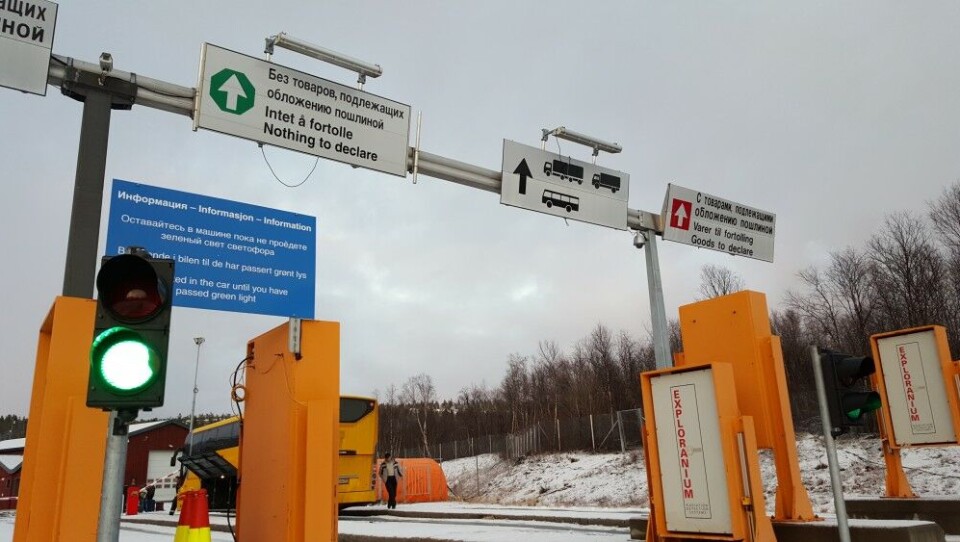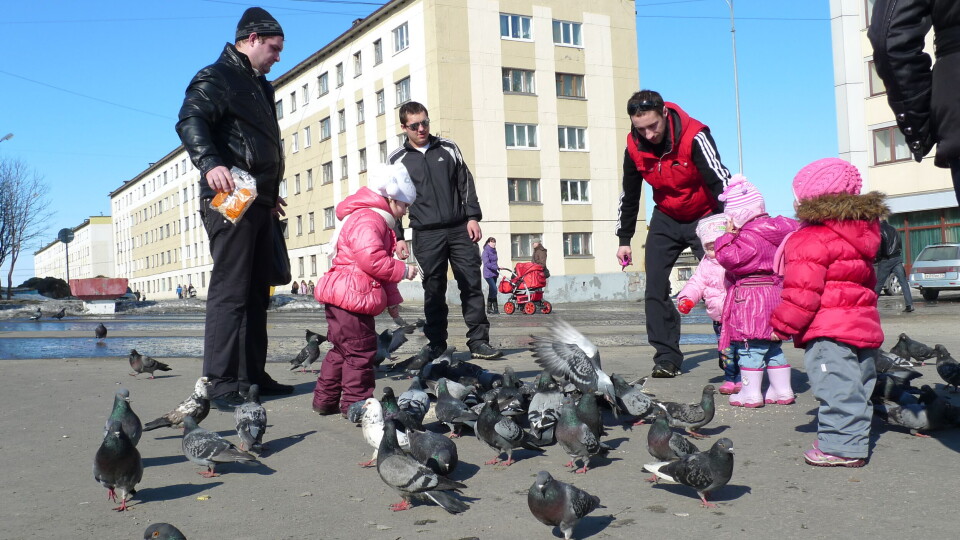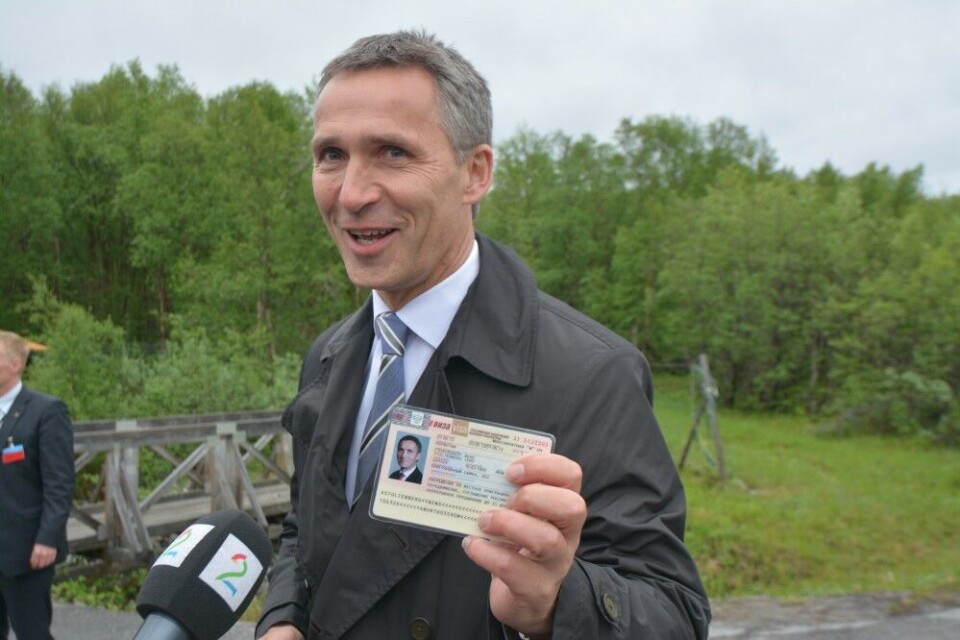
Tensions are high, but no plans to terminate visa-free travel
Russian President Vladimir Putin on Monday signed a decree suspending simplified visa rules for a group of citizens from countries that Moscow deems unfriendly, including Norway. Visa-free travel in the border areas up north, however, is for now not affected.
For decades after the breakup of the Soviet Union, Norway, EU and Russia worked to relax visa requirements. Citizens in Murmansk and Arkhangelsk regions have been granted multiple entry Schengen-visa to Norway valid for up to five years, while Russia has introduced a number of visa simplifications for EU citizens, including Norwegians and Icelanders.
With Russia’s brutal war in Ukraine, it all is set in reverse. Speedy reverse.
Like most European Union countries, also Norway in March withdrew from a set of simplified visa permits for a group of Russian citizens, including diplomats, business people, members of national and regional governments, official delegations and members of legislative assemblies.
People in those categories can no longer obtain multiple entry visas, they need to provide more documentation, the processing time is longer and the previous exemption from - or reduced - visa fee does no longer apply. Also, holders of Russian diplomatic passports can’t enter Norway without a visa.
Oslo on Wednesday expelled three diplomats from Russia’s Embassy in Oslo for carrying out “activities that are incompatible with their diplomatic status.”
Private individuals, however, are not affected by the stricter visa rules. That, for example, means normal people in Murmansk and Arkhangelsk regions can still apply for the so-called Pomor-visa, a multi-entry visa to Norway (and Schengen) valid for up to five years.
Last week, Foreign Minister Sergey Lavrov announced Russia’s intentions to restrict entry rules for people from “unfriendly states”. On Monday, President Putin signed the decree amending the law on visa and entry rules.
The decree is particularly aimed at members of official delegations and journalists, all of who can no longer apply for visas to Russia through a simplified procedure. Like Europe’s new visa requirements for Russian diplomates, Moscow also ends visa-freedom for holders of diplomatic passports from the EU-member states, Norway, Iceland, Lichtenstein and Switzerland.
Putin’s decree also says individual people who “commit unfriendly acts” against Russia, its citizens, or its legal entities will face an entry ban.
While the new Iron Curtain descends between Russia and Europe, a tiny small corner at the northernmost land border still eyes hope for continued travel. A 30-kilometers wide area on each side of the Norwegian-Russian border is officially not affected by the restrictive measures imposed.
Visa-free travel
“The Government is not planning to suspend the agreement on local border traffic regime,” says State Secretary in the Norwegian Foreign Ministry, Eivind Vad Petersson, to the Barents Observer.
Peterson notes that President Putin has signed a decree on measures regarding visas and the Norwegian Government is now working to clarify what the measures will mean.
“So far, we have not received information from the Russian side about what the new measures will mean for Norwegian citizens. The same applies to the local border traffic regime,” Petersson says.
The agreement on visa-free travel for people living in the border areas was signed by the two foreign ministers Sergey Lavrov and Jonas Gahr Støre in 2010 and became effective in May 2012.

Included in the 30-kilometers zone from the state borders are the town of Kirkenes on the Norwegian side and the towns of Nikel, Zapolyarny and Pechenga on the Russian side. Holders of local border traffic permits may stay in the neighboring country’s border area for up to 15 days for each visit without visa.
For coronavirus reasons, though, very few people have been able to take advantage of the border permit over the last two years. Norway removed several of the pandemic entry restrictions earlier this winter, while Russia still have very strict rules for foreigners, including a ban on normal travelers’ use of land border check-points, like the on at Storskog - Borisoglebsk between the two neighbors up north.
Sven Arne Davidsen, an immigration police officer at Storskog, writes in an email to the Barents Observer that only three border crossings from Norway to Russia, and three the other way, in March were made by holders of local border permits.
Stoltenberg was first
The first one to receive the border permit in May 2012, interesting enough, was Jens Stoltenberg, then Prime Minister of Norway, now Secretary-General of NATO.

The border area between Kirkenes and Nikel / Zapolyarny was one of only two places where Russia agreed with a European nation to allow for visa-free travel. The other area, between Kaliningrad and Poland’s Gdansk region, maintained visa-freedom for local citizens for a few years, until Warsaw suspended the agreement after Moscow’s illegal annexation of Crimea in 2014.
Soldiers
Included in the 30-kilometers zone on the Russian side up north are the military brigades at 19 km, Loutari and Sputnik, home to thousands of soldiers with the 200th Motorized Rifle Brigade and the 61st Naval Infantry Brigade, both part of the Northern Fleet.
Both brigades are actively engaged in Russia’s war on Ukraine and as previously reported by the Barents Observer, hundreds of soldiers from the 200th Motorized Rifle Brigade in Pechenga are believed to be killed in action.
Russian military personnel has strict limitations on traveling abroad, and non of the soldiers in Pechenga are likely to hold local border permit for visa-free travel to Norway.

















